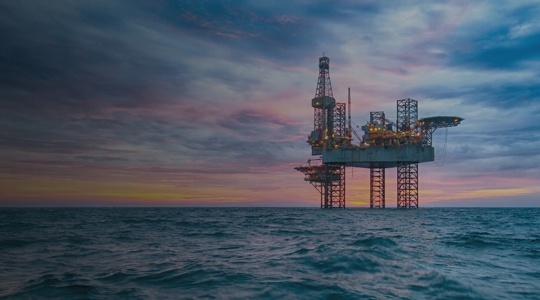Search and rescue operations commenced as soon as the fire was reported, and 152 workers were found and evacuated. Two workers were killed in the explosion, one from France and the other from India. The cause of the fire was likely a buildup of gas pressure from drilling that may have resulted in an explosion. The other theory is that a blowout preventer (BOP) failed to stop gas from leaking into a dangerous area.
Testimonies from Endeavor Workers
The K.S. Endeavor explosion killed two workers. Others were injured in the resulting panic.
Although preliminary investigations into the blast revealed that Chevron’s K.S. Endeavor probably exploded due to a blowout preventer failure, Chevron has yet to be held legally accountable for the accident. There are multiple testimonies that workers on the K.S. Endeavor told Chevron that the oil rig was smoking and in danger of blowing. However, in the statements, Chevron says the workers need to continue working as if nothing was wrong. In fear of losing their jobs, the workers stopped complaining and prepared for the worst.
“About three days before the accident, the drilling company workers told us they wanted to stop drilling because of the gas pressure,” said a French witness. “They spoke with Chevron who told them to carry on.” One of the worker's testimonies says that one of the deceased was sure that the rig was going to explode. “The blowout occurred on Monday at 5.30 a.m., and if he had not advised as he did that the lifeboats be kept serviced and in functional condition then none of us would have made it out alive,” said an eyewitness of the man’s selfless actions.
While the crew could not stop praising the name of the manager who prepared for the worst, Chevron continues to run away from responsibility. One of the testimonies says Chevron flew workers to the oil rig in case the current workers went on strike due to the smoking oil drill. “Additional personnel were even brought onboard to get ahead of what was believed to be impending strike action,” remembers one of the crew members.
When asked about the additional workers, Chevron blamed the strikes occurring at the time. Chevron still holds that they were never warned of the impending explosion; they claim that all of the workers could have exercised stop work authority. “Our employees and contractor are fully empowered to exercise stop work authority (SWA) when they sense an unsafe work environment,” said Chevron in an email. Regardless of the multiple lawsuits brought against Chevron, no one is sure of the exact cause of the explosion. It is probable the general public will never know.
There Is a Solution for American Oil Rig Workers
For American workers injured while working offshore, there are options to help you through your accident. At Arnold & Itkin LLP, we have experienced, aggressive attorneys who are advocates for maritime workers' rights. If you or someone you know was injured or lost their lives on an oil platform at sea, now is the time to talk to an oil rig explosion attorney about your options. We are not afraid to go up against the largest oil companies in the world to seek the best possible compensation.
Call (888) 493-1629 to request a free consultation. We can answer your questions and help you understand your options after a rig explosion, fire, or other catastrophe.
